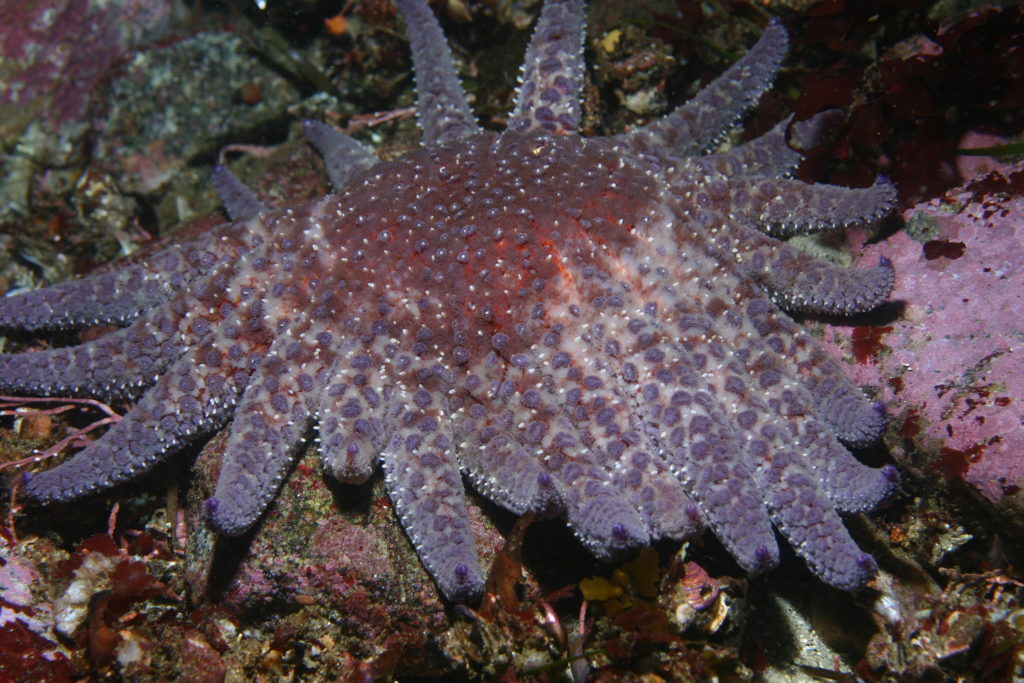
Dr. C. Drew Harvell and her colleagues published a paper in Science Advances on 30 January 2019. Entitled “Disease epidemic and a marine heat wave are associated with the continental-scale collapse of a pivotal predator (Pycnopodia helianthoides)”, the paper presents nearshore and deep water data that show the near complete collapse of sunflower sea star populations from British Columbia to Mexico.
Scientists interviewed for their opinions about both the publication and the ongoing absence of sunflower stars echoed the findings and concerns presented by Harvell et al. Dr. Mark Carr, a professor and marine ecologist at the University of California Santa Cruz has similar monitoring data that mirror those in the paper. He has first-hand experience with the absence of sunflower stars in nearshore ecosystems.
“This is shocking,” says Carr, who was not involved in the study. “This is not just a population reduction, this is virtually the loss of a key species over thousands of miles. We’ve never seen anything like this before.”
Monitoring efforts continue within the sanctuary. Several groups collect annual data on sea stars and other species, including REEF, Reef Check CA, and the Partnership for Interdisciplinary Studies of Coastal Oceans, along with staff from MBNMS and the California Department of Fish and Wildlife.
For more information about sea star wasting disease, see this project in the sanctuary and seastarwasting.org. The Hakai Institute has a great video focused on sunflower stars and the 2019 publication.
Articles related to this publication: Science Magazine, the Washington Post, Popular Science, The Atlantic, EurekAlert!, Citizen Truth, Monga Bay, and Cornell Chronicle. Reef Environmental Education Foundation (REEF) article.